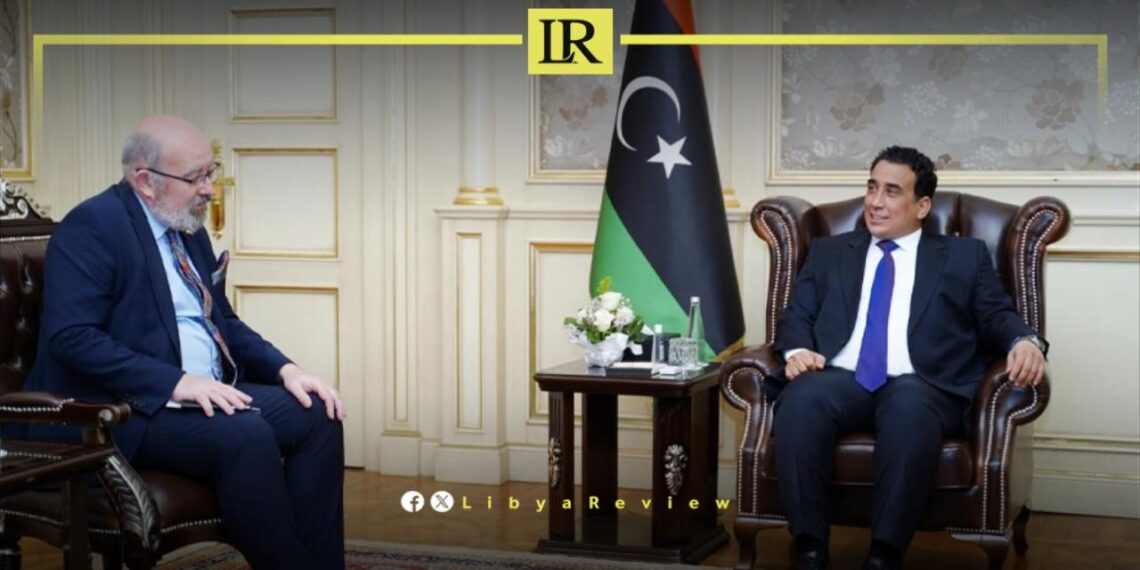On Sunday, the head of the Libyan Presidential Council, Mohamed Al Mnifi, held talks with Martin Longden, the British Ambassador to Libya, to discuss the country’s latest political and economic developments.
During the meeting, Al Mnifi emphasized the importance of unified efforts to establish a mechanism for budget distribution.
The Presidential Council’s media office stated that the discussions focused on ensuring a transparent and fair allocation of budget and resources under Libyan leadership. The goal is to guarantee equitable distribution, transparency, and efficient spending.
This follows Al Mnifi’s recent discussions with EU ambassadors accredited to Libya to address the latest political developments in the Libyan arena.
The meeting is part of broader efforts to engage international stakeholders in supporting Libya’s political transition. By reaching out to major powers like the UK, Libya’s Presidential Council aims to build a consensus for a political solution that includes all factions. The goal is to end the cycle of transitional governments and move towards stable governance through free and fair elections.
Libya has been navigating a complex and turbulent political landscape since the fall of Muammar Gaddafi in 2011. The nation has struggled with internal divisions, rival governments, and various militias competing for control. This instability has hindered efforts to rebuild the economy and establish cohesive political institutions.
The ambassadors emphasized the need for coordinated efforts to combat illegal immigration, terrorism, and organized crime.
They cautioned against the destabilizing effects of financial corruption in the Mediterranean and Sahel regions. They endorsed the creation of a national mechanism to combat financial corruption, with training and support provided by the EU.
Libya has faced ongoing political instability and division since the fall of Muammar Gaddafi in 2011. The country has been split between rival administrations in the east and west, each backed by various militias and foreign powers. Efforts to unify the country have been persistent but challenging, with the Presidential Council and the Government of National Unity (GNU) at the forefront of these initiatives.


